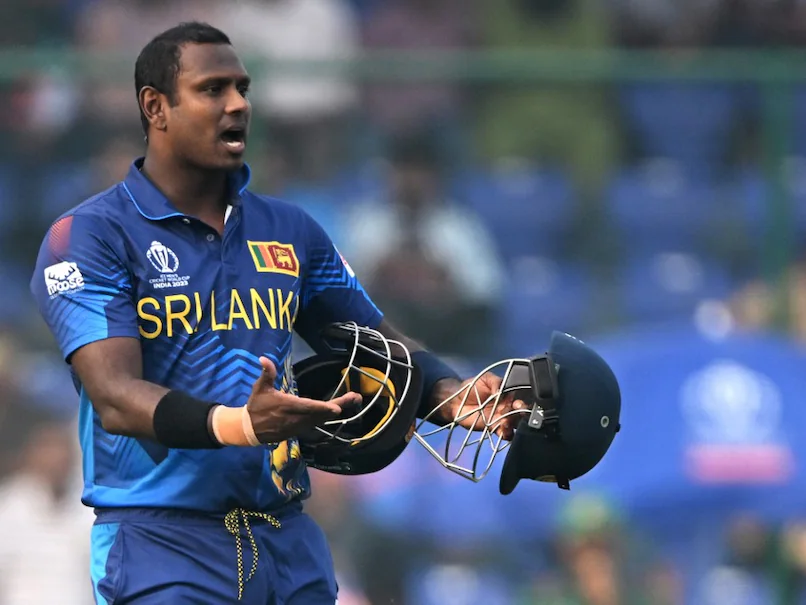Angelo Mathews claimed the umpires made an error and shared video evidence, asserting he had “5 more seconds” left. A major controversy unfolded in the ongoing Cricket World Cup when Angelo Mathews became the first batter in the 146-year history of international cricket to be timed out.
Mathews entered the crease after the two-minute deadline, following Sadeera Samarawickrama’s dismissal due to equipment issues. The former Sri Lanka captain expressed anger, criticizing the fourth umpire and condemning Bangladesh captain Shakib Al Hasan’s actions as “disgraceful.”
Later, Mathews presented “video evidence” indicating he had “5 more seconds,” sharing a screenshot of the precise timing of Samarawickrama’s dismissal and his arrival at the crease.
Mathews claimed the umpires made a mistake, and the Marylebone Cricket Club (MCC), responsible for the game’s rules, has issued a statement on the matter.
The Marylebone Cricket Club (MCC) has provided clarification regarding Angelo Mathews’ dismissal
The MCC stated that Mathews could have signaled to the umpires when his helmet strap broke, and the officials would have granted him additional time to fix his equipment.
“Had the umpires been informed of a significant, justifiable, equipment-related delay within the two-minute allowance, they could have treated it as a new type of delay (as they would when).”
“For example, a bat breaks), possibly even calling Time, allowing for a resolution of that delay without the batter being at risk of being Timed out.”
”However, it is important to note that both umpires determined the delay came after the two minutes had elapsed, and that Time had not been called before the appeal,” Fox Sports Australia quoted MCC as saying in a statement.
“Having taken more than 90 seconds to get to the 30-yard circle, Mathews appeared to notice that he was short on time, jogging the final few yards to the wicket.”
“His helmet malfunction has since been shown to have taken place 1 minute and 54 seconds after the previous wicket had fallen. He had not, at this stage, begun to take guard and was not close to being in a position to receive the ball.”
Get the latest cricket news here, like us on Facebook, and follow us on Twitter and Instagram for more such updates.

